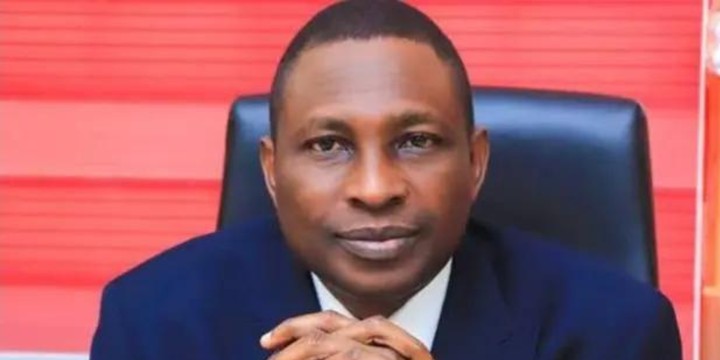The Executive Chairman of the Economic and Financial Crimes Commission, EFCC, Mr. Ola Olukoyede has reaffirmed the Commission’s commitment to the realization of the Whistleblower Protection Law in the country.
He made this known on November 26, 2024 in a sub-regional conference on Whistleblowing and Whistleblower
Protection in West Africa, held at the EFCC Academy, Karu, Abuja. Themed: “Reducing Corruption in West Africa: The Importance of Whistleblowing and Whistleblower Protection Legislation,” the conference highlighted the crucial role whistleblowing plays in tackling corruption in member states of region.
Olukoyede, who spoke through his Chief of Staff, Commander of EFCC, Michael Nzekwe, urged Nigerians to support the anti-corruption fight of the federal government by reporting acts of corruption to the EFCC. “I am calling on Nigerians to be patriotic and support anti-corruption agencies in the fight against corruption by blowing the whistle on any act of corruption you see. The financial incentives shouldn’t be your primary motivation, patriotism and the need to support EFCC’s anti-corruption fight should be your driving force,” he said.
The EFCC Chairman in the same vein,
appealed to civil society organizations to take up advocacy for the passage of Whistleblower Protection Law in the country. “We need collective efforts, especially those of civil society organizations to ensure that whistleblowers are protected and the necessary legislation passed to encourage more people to come forward without fear,” he said.
In his opening remarks, Dr. Chido Onumah, Coordinator of the African Centre for Media and Information Literacy (AFRICMIL), regretted the lack of progress on whistleblower protection laws in the West African region, noting that “Of the 15 ECOWAS member states, only Ghana has enacted a Whistleblower
Protection Law. This is not a good advertisement for ECOWAS, a region consistently rated poorly on Transparency International’s Corruption Perception Index.”
Dr. Onumah further noted that entrenched corruption and poor governance have left resource-rich West African countries
grappling with severe poverty. According to him, “Lack of accountability and transparency in resource management has been the key driver of the trend of poverty in the region,” and urged the governments of the region’s member states to adopt whistleblowing as a tool to expose bribery, fraud, and misuse of public funds.
The representative of the United Nations Office on Drugs and Crime (UNODC), Princess Chifiero, identified Whistleblower Protection Law as a cornerstone in the anti-corruption fight. She referenced Article 33 of the United Nations Convention against Corruption, which requires states to provide measures
to protect individuals who report corruption. “A robust reporting and protection system is essential for institutional accountability and achieving Sustainable Development Goal 16,” she said.
Hafsat Abubakar Bakari, the Chief Executive Officer of the Nigerian Financial Intelligence Unit (NFIU), who spoke through Changcit Jagaba, underscored the need for a global approach in combating corruption. “The fight against corruption should not only be localized but also globalized. We must build systems that can stand against corruption universally,” she said.
Other contributors, including representatives from the Code of Conduct Bureau (CCB), the Independent Corrupt Practices and Other Related Offences Commission (ICPC), reaffirmed their support for the Whistleblower Protection Law.
The resolution of the conference among others, included a call on governments of ECOWAS Member States, civil society organizations, and citizens for devoted actions towards the enactment of Whistleblower Protection Laws. It was anchored by Barrister Osita Nwaja, former director, EFCC’s Media and Publicity Department.




